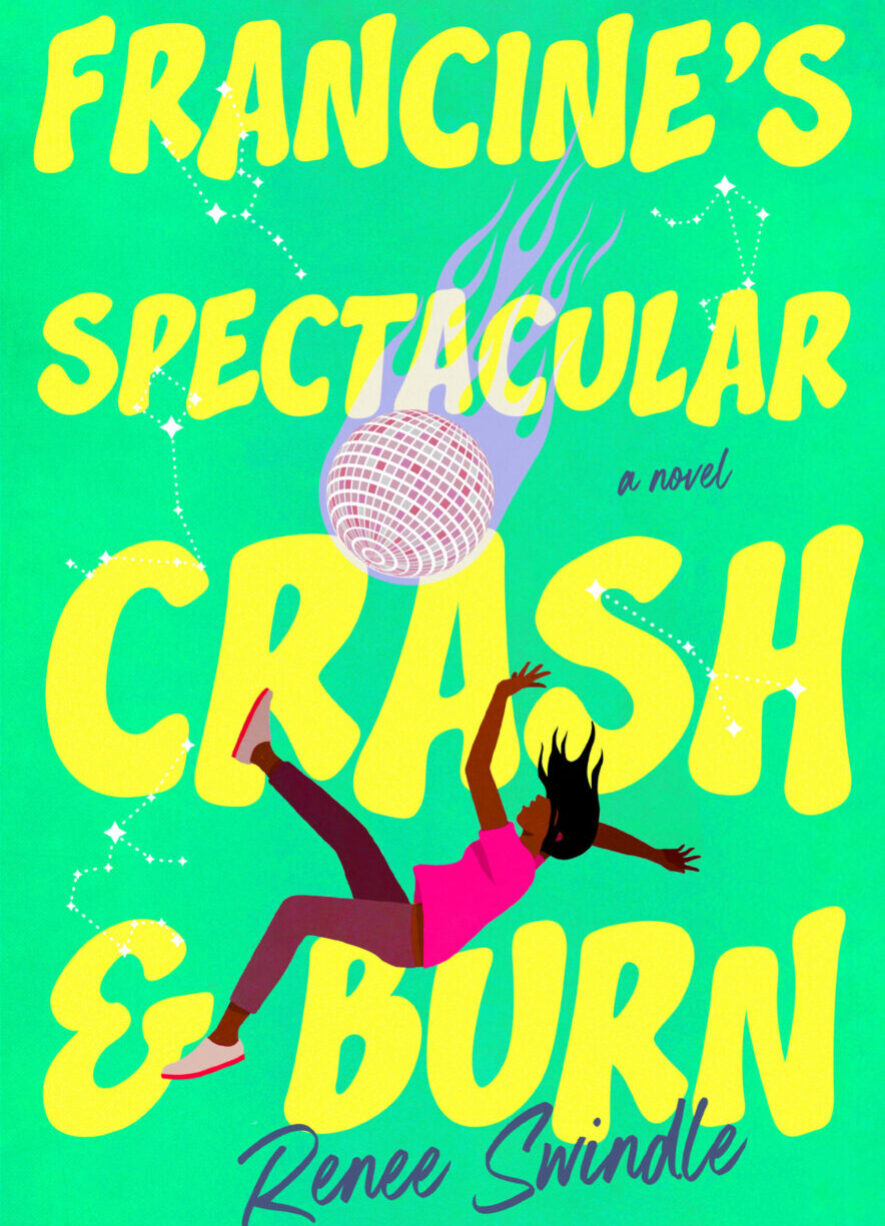Susan Pohl grew up a Southern Baptist and as a child witnessed revivals where people spoke in tongues and handled snakes. Later, she worked in the corporate offices of Apple during the early years of the company and studied meditation with Zen teacher Joan Hallifax. She went on to work as a chaplain intern the federal women’s prison, FCI Dublin.
From Kirkus Reviews: “Faith, courage, kindness, service and love—these are the five stones that stand for the values upon which Pohl has based her life. A spiritual journey told by a thoughtful, questioning author who has experienced worldly success.”
Susan Pohl completed a Master of Divinity and a Doctor of Ministry at the Graduate Theological Union in Berkeley, California. She and her husband and have an apartment in Italy that they are in the process of restoring. You can visit her blog at AmericansinUmbria.
RS: The women you met in the prison where you served as chaplain all had such compelling and often heartbreaking stories; how did you know which story to retell? Did you ever have pause about retelling other women’s stories? Did you ever worry about having their approval or not?
SP: In choosing the stories to tell, I had two goals in mind. One was that I looked for stories that would speak to our mutual humanity and to help the reader see the women as people first and foremost who had lives and stories apart from their criminal behavior. The second goal was to demonstrate the injustice of the American judicial system and the unintended consequences and effect it has on female inmates.
I wrestled for a long time with the appropriateness of telling their stories. Would I be one more person in a long line of relationships who would take advantage of them and their circumstances? I tried to mitigate against this question in several ways. First, I asked for and received written approval from each of the women whose stories I told. Second, in order to protect their anonymity, I not only changed their names but also several significant pieces of biographical and descriptive information about them. Finally, this concern was addressed by the women themselves. Their biggest fear was not that they would be exploited by someone telling their stories but that they would remain the forgotten of the forgotten. I made a promise to Eileen (one of the women whose story is told most in-depth) that I would write a book about women in prison. I also hope that by telling this story, the legal system and its use of mandatory sentencing and the conspiracy law is highlighted.
RS: What I admire about people who write memoir is that you have nothing to hide behind and yet you’re courageous enough to share your stories–your truth, your pain, all of it. Did you ever fear sharing such private memories? Did you worry what your family members or friends would say? If you experienced fear, how did you write through the fear?
SP: I could not have written this memoir while my mother was still alive. Although I tried to represent her fairly, she would have been horrified at my description of her and our family conflicts. The one person whose opinion mattered to me was my sister Sarah, who read the memoir as I wrote it. Her advise to me was always the same. If you’re going to write about the family, you need to tell the unvarnished truth. She took me to task several times when she thought I was glossing over some of the pain and cruelty in our family system.
RS: You write that you are guided by your five stones: faith, courage, kindness, service and love. Would you share a few words on each stone?
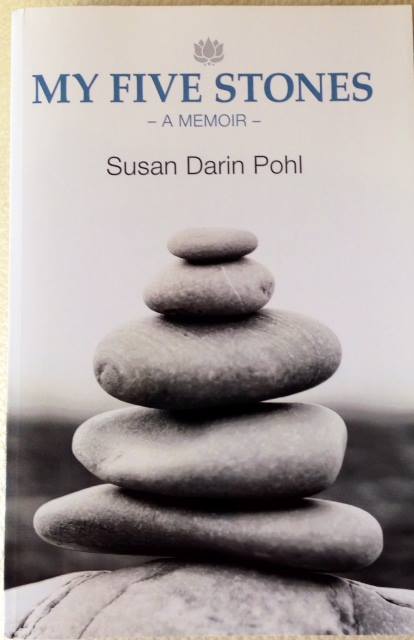
SP: I live in Italy now, and I took my five stones with me when I relocated. My faith has been hidden of late. Sometimes, it plays games of hide and seek with me, and at the this time, it appears to be winning. Eventually, I always find it and then the game begins again.
Courage is my predominant stone at the moment. It is keeping me at my computer, and struggling with my current writing project. Retiring to Italy has been a difficult transition for me, just as all the transitions in my life have been difficult. I rely on my courage now more than ever.
Kindness is a constant. I don’t have to play games with it or work on it. I have a temperament that allows me to try to understand the other person’s point of view, and when I do that, kindness appears. I do have moments of feeling unkindly toward others who don’t love Italy, but I try to get over it!
Service has been difficult for me to find here. I am the one being served, and that is my current lesson. I am still too much of a novice in the culture and the language to be of service to others. I am learning the deep sense of reassurance and thankfulness of having others who are in service to me but that is coupled with more than a scoopful of guilt. It is an important lesson in being of service to others.
Love, in Italy, is the easiest thing of all. I look out my window into the piazza below, and see three beautiful buildings from the 1500’s. I see Antonietta in her kitchen window preparing lunch for her family. The church bells ring, and pigeons suddenly fly over my window. As I look up, I am reminded that the skies and the light that shines through the Umbrian hills is love made manifest for me.
RS: Several of the women in the prison seemed to push certain buttons –or highlight personal issues you yourself were dealing with—none more than Eileen, a former heroine addict who reminded you of your mother, who happened to have mental health issues. How do you find perspective when you’re writing about and reliving such intense issues? When you wrote the memoir were you at a safe place that allowed for objectivity so to speak, or did you have to relive every moment?
SP: This is a really important question for any one considering writing a memoir. I spent four years writing this book. Some scenes, specifically the one of my mother throwing my older sister down the stairs, were so intense to write, that I needed a break from the process and took a long vacation. In writing this, I battled with my two demons, fear and sadness. I wrote over, under and through these emotions. I also use humor a lot. It helps to break the tension and gives me a feeling of safety.
RS: What advice do you have for those thinking of writing a memoir?
SP: Just as they say dance as if no one is watching, I would say write as if no one would read it. The work is not easy but I found it very rewarding.
RS: What would you say was the most satisfying aspect of writing My Five Stones?
SP: Finishing it. My wise writing teacher told our class that one of the major differences between people whose work is published and those whose work is not, is that the published people finish their work. I made a promise to Eileen that I would write this book, and I was very happy that I kept my promise.
RS: Most people dream of moving overseas but you actually did it. Can you tell us what made you decide to make the move to Umbria, Italy? Do you think you’ll write a memoir about your time there?
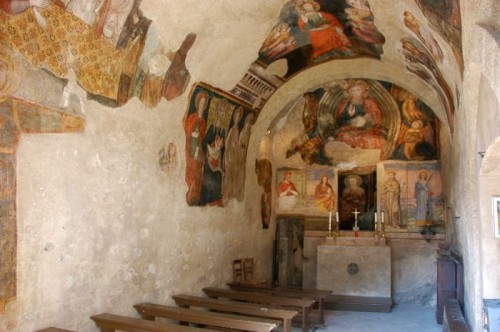
Image found on Umbria.com
SP: I have always loved Italy and indeed I have felt loved back here. Umbria is known as the Green Heart of Italy. It is a magical , spiritual place. The spirit of Saint Francis is alive in the hills.
RS: If I were to visit Umbria (and I just might!), what are a few places you’d suggest I’d see?
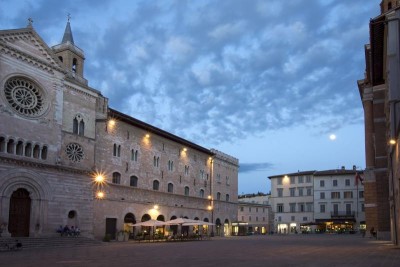
Image found on Umbria.com
SP: My favorite Umbrian town is Gubbio. It is such a sweet little town. The people are called the crazy ones because they keep to the old traditions and were isolated for so long from the rest of the population. Perugia, Orvieto, Spello, Spoleto are all hill towns that have magic about them. The food in Umbria is excellent no matter where you go as is the wine. There is even a little town called Umbertide that just might charm you and cause you to change your life.
RS: Describe your perfect Sunday.
SP: I get up and do some writing. I wave to Antonietta out my window. I take our sweet dog Luca for a walk. At 1:30 we go to Calagrana, a farm near by, that serves lunch on Sundays. We return, I take a short nap, finish reading the Sunday New York Times on line. At 5:30 we meet with an American couple and watch a movie together. A light dinner of fruit and salad, more walks with the dog, and then it will be time for bed.

Strangozzi al sugo di pomodoro, better known as spaghetti!
RS: Care to tell us about what you’re working on now?
SP: I am currently working on a book about the time I spent working for Apple in the 80’s.
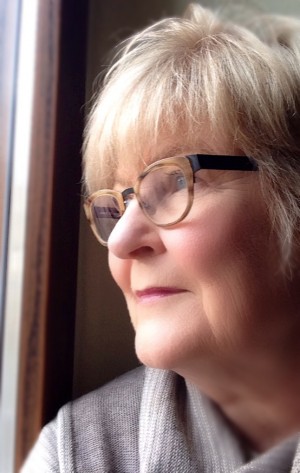 Graci Susan!
Graci Susan!
+
